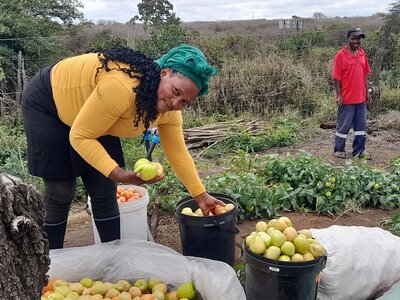Eswatini
- 25%
- of children aged under 5 are affected by chronic malnutrition
- 25%
- of adults are living with HIV
- 1.2 million
- population
Eswatini has made progress in economic growth and sustainability since 2010. However, it is estimated that 29 percent of the population are facing severe acute food insecurity and urgently require humanitarian assistance. The prevalence of food insecurity and malnutrition remains a pressing concern across the country. Chronic malnutrition and stunting affect 26 percent of children aged under 5.
Farming is an important source of food and livelihoods for 75 percent of rural families. However, Eswatini is vulnerable to climate change, with frequent droughts, erratic rainfall and prolonged dry spells all affecting food production. Other factors include inadequate farming technologies, low investment in seeds, fertilizers and equipment, and structural barriers preventing access to formal markets. As a result, the country depends on imports to feed its people.
Eswatini is likely to face a below-average harvest in 2023/24, for both consumption and cash crops, compared to 2022/23. Approximately 30 percent of all food produced is lost post-harvest due to poor harvesting, handling, storage and transport infrastructure.
The Government of Eswatini, with support from the World Food Programme, is prioritizing climate change adaptation strategies for farming, through the the Climate Proof and Resilience Project..
What the World Food Programme is doing in Eswatini
-
Crisis response
-
WFP provides cash-based transfers and food to the most vulnerable families across the country. In 2023, we reached 54,800 people with cash-based transfers and 54,600 children with nutritional support.
-
Home-grown school feeding
-
Social safety nets and livelihoods
-
Neighbourhood care points
-
Climate Proof and Resilient Livelihood Project
Eswatini news releases
Go to pagePartners and donors
Find out more about the state of food security in Eswatini
Visit the food security analysis pageOperations in Eswatini
Contacts
Office
2nd Floor New UN House, Corner Somhlolo Road & Madlenya Street
Mbabane
Eswatini







